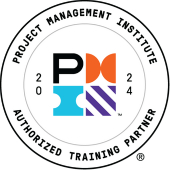Emotional Intelligence (EI) is our ability to identify and control our emotions to achieve positive outcomes in our relationships. Project managers with high EI are better equipped to deal with team members, vendors, stakeholders, and sponsors and to handle and resolve conflicts. Dr. Cary Cherniss, Professor of Applied Psychology at Rutgers University and co-author of Leading with Feeling: Nine Strategies of Emotionally Intelligent Leadership noted:
“… there now is a considerable body of research suggesting that a person’s ability to perceive, identify, and manage emotion provides the basis for the kinds of social and emotional competencies that are important for success in almost any job. Furthermore, as the pace of change increases and the world of work makes ever greater demands on a person’s cognitive, emotional, and physical resources, this particular set of abilities will become increasingly important.”
Dr. Daniel Goleman, an author and science journalist, popularized a model and an equivalent self- assessment for EI with five major components:
- Self-awareness: recognizing and understanding your emotions and their impact. (Questions 1-5)
- Self-management: practicing self-control of your emotions and adapting to changing circumstances. (Questions 6-10)
- Self-motivation: employing your emotions to guide you toward your goals, persevering despite obstacles. (Question 11-15)
- Social awareness: recognizing social contexts and reacting to the emotions of others. (Questions 16-20)
- Relationship management: influencing others and managing conflict. (Questions 21-25)
To learn about emotional intelligence and to take Dr. Goleman’s assessment, consider taking our online course and earn 3 PDUs.

